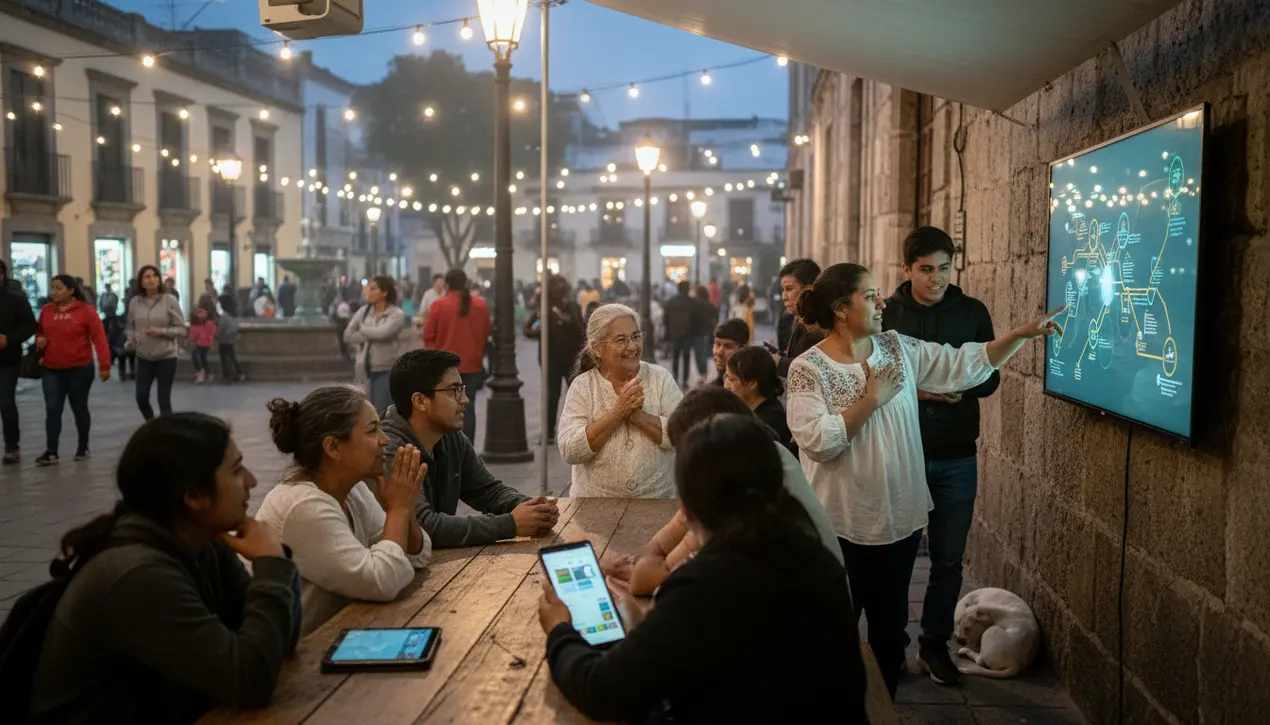
AIgenerative aiAI for Business Use
Latin America Leads in AI Adoption, Emphasizes Community.
MI
Michael Ross
2 hours ago7 min read
Latin America has emerged as one of the global leaders in AI adoption in recent years, surpassing advanced economies like South Korea, Spain, and the U. S.According to the 2024 Digital Consumer Insights report by Omdia, a global market researcher, Brazil is the Latin American country with the highest prevalence of AI users, at a staggering 76%. This isn't just a statistical blip; it's a profound shift in the global technological landscape, reminiscent of the region's rapid leapfrogging into mobile banking.While Silicon Valley obsesses over the raw computational power of large language models and the hypothetical paths to Artificial General Intelligence (AGI), Latin America is quietly demonstrating a more nuanced, and arguably more sustainable, approach by embedding these tools within the very fabric of community. This focus on communal application over isolated technological prowess raises critical questions about the ethical and practical future of AI, echoing the foundational debates initiated by visionaries like Isaac Asimov.The core principle, often missed by developers of consumer-facing tools in the Global North, is that an AI's utility is not solely a function of its parameters or training data, but of its integration into pre-existing social networks and its ability to foster connection. In markets from Mexico to Argentina, AI is being leveraged to streamline small, family-run businesses, coordinate community responses to environmental challenges, and create localized content that resonates with cultural specificity—applications that are inherently social.This stands in stark contrast to the often solitary experience of a user in the United States prompting a chatbot for individual productivity gains. The policy implications are immense.As regulators in the European Union grapple with the AI Act and the U. S.engages in protracted debates about safety and alignment, Latin American nations are presented with a unique opportunity to craft governance frameworks that prioritize collective benefit and digital inclusion from the outset. They can avoid the reactive policymaking that has plagued other technological revolutions.However, this rapid adoption is not without its risks. The same community-centric networks that enable positive applications could also accelerate the spread of misinformation or deepen existing social biases if the underlying AI models are not carefully audited.The challenge, then, is to harness this organic, bottom-up adoption while implementing guardrails that protect against harm, a balancing act that requires a deep understanding of both the technology's potential and the region's unique social dynamics. The Latin American experience serves as a crucial real-world experiment: it suggests that the ultimate success of AI may depend less on creating a perfectly autonomous intelligence and more on building tools that amplify human collaboration and strengthen community bonds, a lesson the rest of the world would be wise to heed.
#AI adoption
#Latin America
#Brazil
#community
#consumer tools
#enterprise
#featured
Stay Informed. Act Smarter.
Get weekly highlights, major headlines, and expert insights — then put your knowledge to work in our live prediction markets.
Related News
Comments
Loading comments...
© 2025 Outpoll Service LTD. All rights reserved.